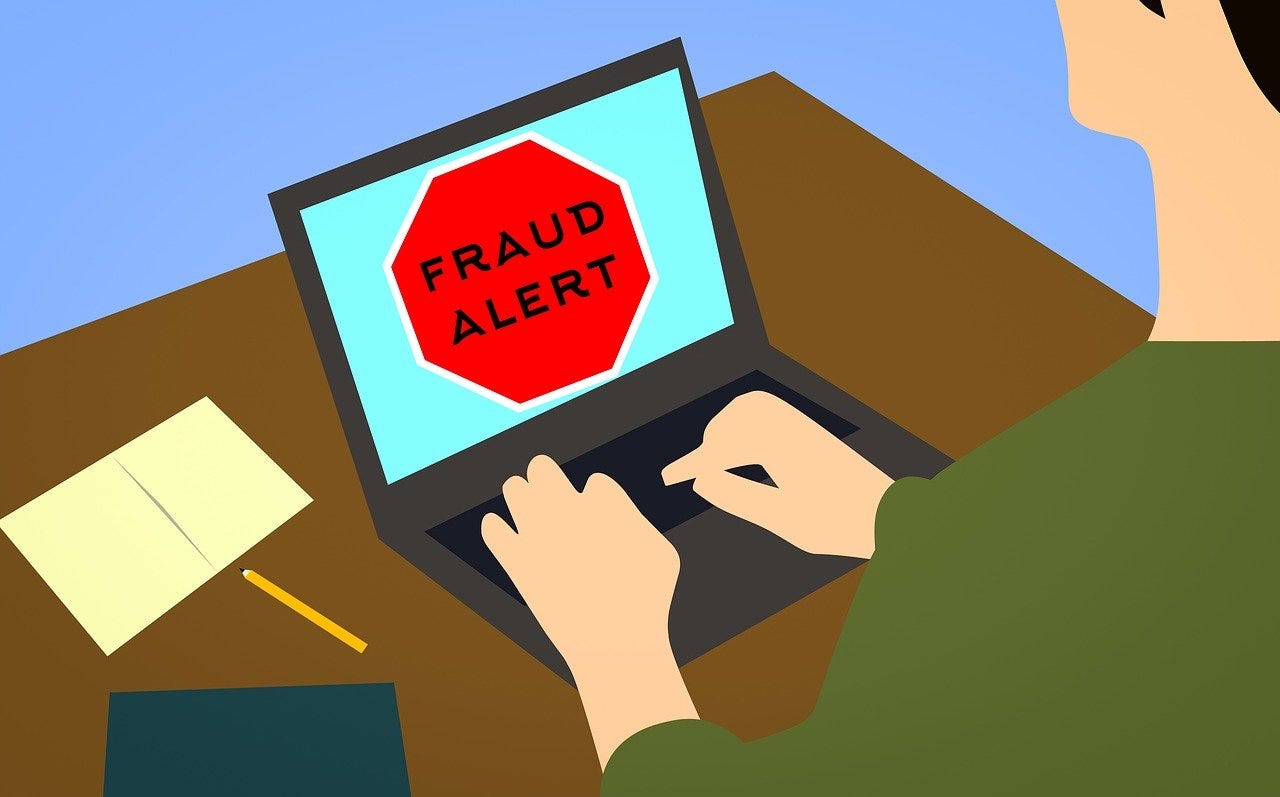The Latest From Kevin The Tech Guy - 3 Things To Know on Friday, Feb 21 2025
Microsoft killed Windows Mail, OneDrive is causing more problems than it solves, and e-transfer scams are catching people off guard. Here’s what to watch out for.
Introduction
Hey there,
I’m KevinTheTechGuy.ca. This newsletter is FREE and always will be. If you appreciate my work, please support me monthly or on a one-time basis on my website.
Microsoft is at it again, making changes nobody asked for. First up, the Windows Mail and Calendar apps are gone, and in their place, we get… the new (free) version of Outlook. If you’re not thrilled about that, don’t worry—there are better alternatives.
Meanwhile, OneDrive Backup is causing its own brand of chaos. If you’ve ever turned it on, only to find your files mysteriously relocated and your folders emptied, you’re not alone. It’s designed to push everything into the cloud, and once it does, getting your setup back to normal is more complicated than it should be.
And if that wasn’t enough, e-transfer scams are getting more sophisticated. Scammers are tricking sellers into thinking they’ve been paid when they actually haven’t. A quick tip—never click on links in payment notifications. Always check your bank account directly to confirm you actually got the money.
We’ve got the details on all of this, plus a quick roundup of tech news you might have missed. Let’s dive in.
—Kevin The Tech Guy
What’s on Tap
Windows Mail is dead: Microsoft replaced it with a clunky new free version of Outlook.
OneDrive Backup is a mess: It moves your files around in ways you didn’t ask for, fills up your cloud storage fast, and turning it off doesn’t fix the damage.
E-transfer scams are on the rise: Scammers are tricking sellers into thinking they’ve been paid. Always verify payments directly in your banking app—don’t trust email or text notifications.
Tech News You Might Have Missed:
Mastodon is adding the controversial ‘quote posts’ feature.
New Mac malware is disguising itself as browser updates.
Apple finally lets you merge two Apple IDs—sort of.
How to bulk download Kindle files, while you can
Stalkerware apps Cocospy and Spyic leaks are exposing phone data of millions of people
Windows Mail is Gone. Here Are A Few Alternatives to the Free Outlook: Thunderbird, Betterbird, and EM Client
The Short Version
Microsoft's push to replace Mail and Calendar with a sluggish web-based Outlook has left a lot of users scrambling for better options. If you're looking for a functional, frustration-free email client, Thunderbird, Betterbird, and eM Client are solid alternatives that actually work.
Know More
Microsoft shut down the old Mail and Calendar apps, replacing them with a sluggish, web-based version of Outlook that feels like a step backward. If you're not a fan of the new setup, there are solid alternatives that actually work. Thunderbird is packed with features and completely free, though it can feel a bit cluttered.
Betterbird takes Thunderbird and smooths out some rough edges, offering a more polished experience without changing too much. eM Client, on the other hand, is sleek and user-friendly, but its free version limits you to two accounts, and the full version comes at a price.
If Outlook’s new direction isn’t for you, these options can help you take back control of your email.
The OneDrive Backup Mess: What You Need to Know and Why You Should Avoid It
The Short Version
OneDrive Backup promises convenience but reshuffles your files in ways you didn’t ask for. If you’ve ever wondered why your documents keep disappearing or why turning it off doesn’t fix the mess, you’re not alone.
Know More
OneDrive Backup sounds useful, but it actually moves your files in confusing and frustrating ways. By default, your documents stay on your PC, but once you turn on OneDrive Backup, Windows shifts them to the cloud and redirects your folders.
If you have more than 5GB of files, you’ll quickly hit OneDrive’s free storage limit, and Microsoft will push you to buy more space. Turning the feature off doesn’t restore things to how they were—your original folders stay empty, and you have to manually move everything back.
It is easier to manage your files yourself instead of dealing with this mess, and you can decide what stays local and what gets backed up elsewhere.
E-Transfer Scams Are on the Rise. Here’s How to Protect Yourself
The Short Version
Scammers are using fake e-transfers to trick sellers into losing money instead of getting paid. A recent RCMP warning highlights how these scams work and how easy it is to fall for them. Before you accept your next e-transfer, here’s what you need to know to stay ahead.
Know More
E-transfer scams are on the rise, especially targeting people selling items online. My mom, Gail, came across an RCMP warning about a scam where sellers think they’re receiving payment but are actually authorizing a withdrawal or giving scammers access to their bank accounts. The scam usually starts with a fake e-transfer notification that looks real, tricking people into clicking a fraudulent link.
To avoid falling for this, always verify payments by logging into your bank directly—don’t rely on email or text notifications. Never click on links to accept e-transfers; instead, use your banking app or official website. If possible, use cash for in-person sales or payment methods with buyer and seller protection, like PayPal Goods & Services. Setting up auto-deposit can also prevent fraudulent transfers.
For regular e-transfers, like paying someone you know, there’s no risk—this scam only works when someone pretends to send you money but tricks you into sending them money instead. Selling online can be safe if you take precautions, so double-check before accepting payments to protect yourself from fraud.
Tech News You Might Have Missed
Mastodon is working to add the controversial ‘quote posts’ feature (TechCrunch)
New Mac Malware Poses as Browser Updates (TechRepublic)
Apple finally lets you merge 2 Apple IDs—kinda. Here’s how (Fast Company)
How to bulk download Kindle files, while you can (Six Colors)
Stalkerware apps Cocospy and Spyic are exposing phone data of mil lions of people (TechCrunch)
Final Thoughts
That’s the latest for this week.
Microsoft is making email worse, OneDrive is shuffling files like a magician with bad intentions, and scammers are finding new ways to trick people out of their money.
The good news? You’ve got options. Whether it’s switching to a better email client, keeping control of your own files, and staying sharp against scams. A little awareness goes a long way.
Got thoughts on any of this? Hit reply—I’d love to hear what you think. And if you found this helpful, pass it along to someone who could use the heads-up.
—Kevin The Tech Guy
Please Support My Work
I offer my newsletter and sub-newsletter (blog post teasers) on Substack for FREE to promote my home business and website blog posts. I will never financially support Substack. Please consider supporting my work directly for $5/mo or via one-time options, as noted on my website. Your support makes my work possible.
There are not paid ads. I simply want to support some friends:
Seth has now cut my hair twice. He’s not only an incredibly skilled barber based in Red Deer, but also a genuinely fantastic guy! He has supported my business, so I’m excited to spread the word about his work as well!
Also, his FREE newsletter is absolutely wonderful and hilarious! Sadly you can’t sign up for them on his website for some reason, but check out the archives! Send him a quick email, or get signed up after a haircut! I’m trying to get him on Substack as well. He says he just has to find the time. Fair enough.
Kim Siever has been a good friend of mine since we first joined Twitter in 2007 when I was going to college in Lethbridge. He’s a terrific person, and he’s passionate about his home business, AlbertaWorker.ca, where he focuses on issues directly affecting the working class in Alberta. Please check out his website, and support him on his website or Patreon.






